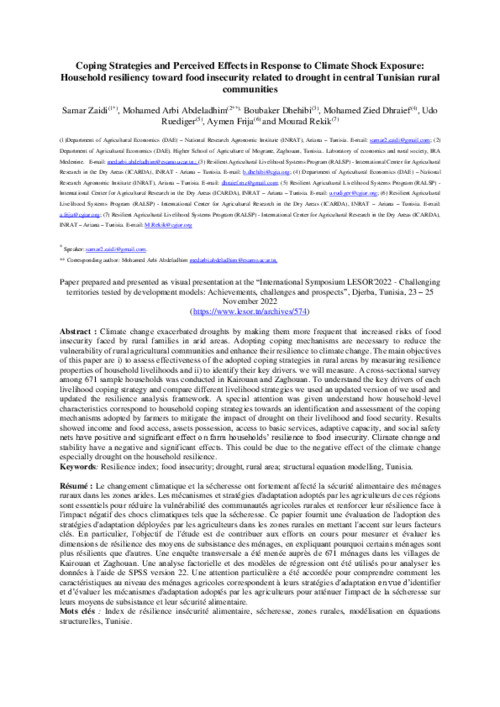Coping Strategies and Perceived Effects in Response to Climate Shock Exposure: Household resiliency toward food insecurity related to drought in central Tunisian rural communities
Abstract
Climate change exacerbated droughts by making them more frequent that increased risks of food insecurity faced by rural families in arid areas. Adopting coping mechanisms are necessary to reduce the vulnerability of rural agricultural communities and enhance their resilience to climate change. The main objectives of this paper are i) to assess effectiveness of the adopted coping strategies in rural areas by measuring resilience properties of household livelihoods and ii) to identify their key drivers. we will measure. A cross-sectional survey among 671 sample households was conducted in Kairouan and Zaghouan. To understand the key drivers of each livelihood coping strategy and compare different livelihood strategies we used an updated version of we used and updated the resilience analysis framework. A special attention was given understand how household-level characteristics correspond to household coping strategies towards an identification and assessment of the coping mechanisms adopted by farmers to mitigate the impact of drought on their livelihood and food security. Results showed income and food access, assets possession, access to basic services, adaptive capacity, and social safety nets have positive and significant effect on farm households’ resilience to food insecurity. Climate change and stability have a negative and significant effects. This could be due to the negative effect of the climate change especially drought on the household resilience

